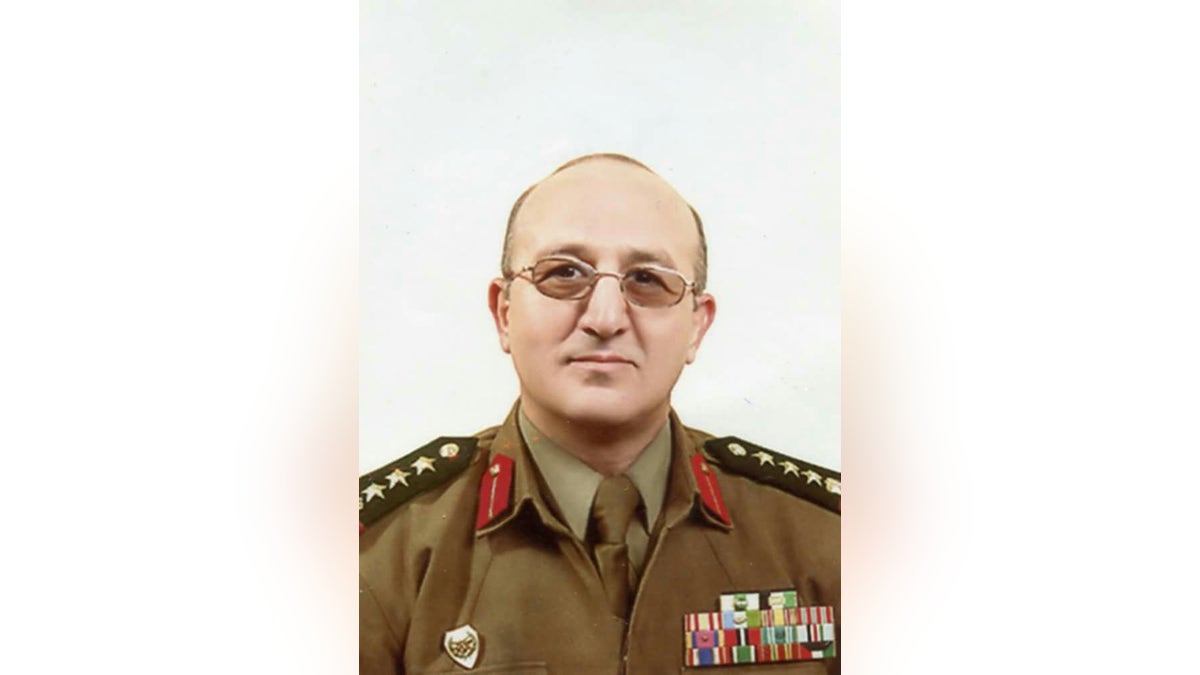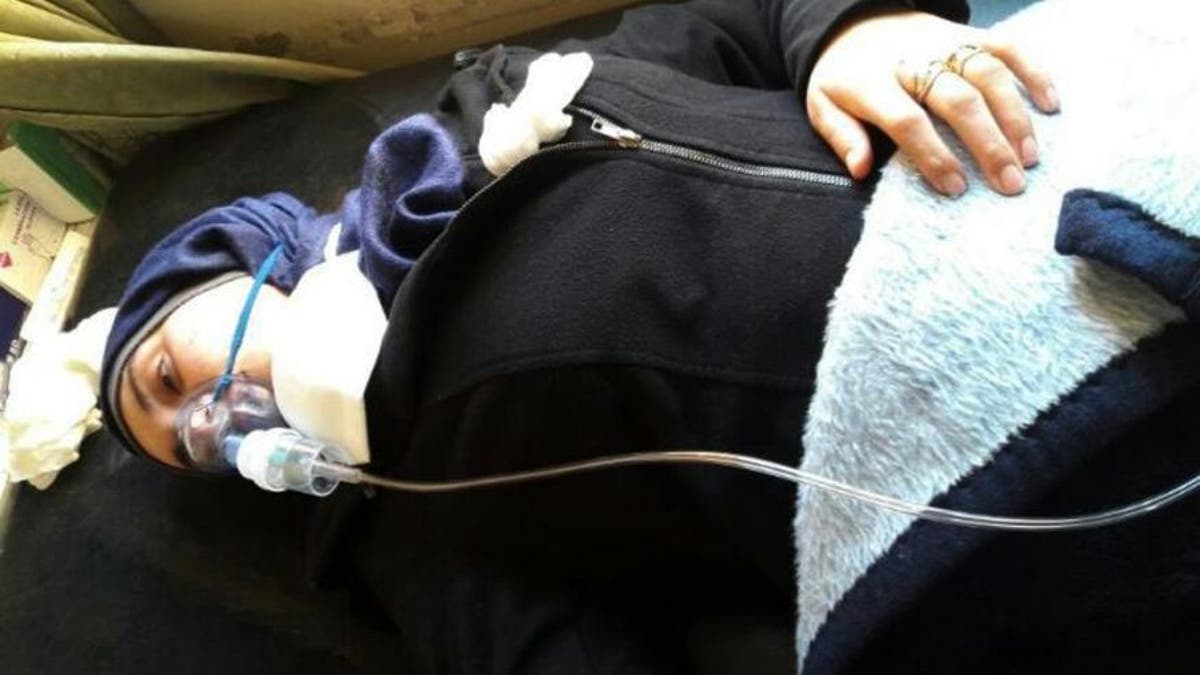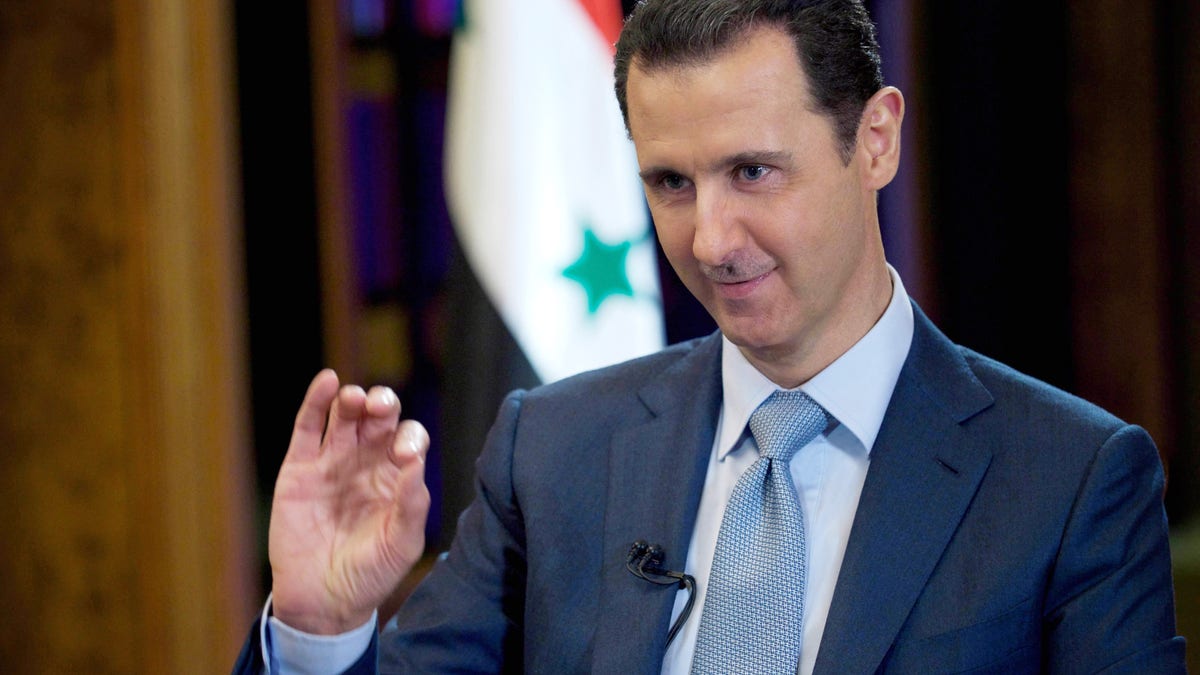
Brig. Gen. Zaher al-Sakat, once the military's chemical weapons chief in charge of such scientific operations for the Syrian Army, says the alleged sarin attacks are no surprise.
Appalling images of Syrian babies gasping for breath and others foaming at the mouth after the Damascus regime hit a rebel-held town with chemical weapons has stunned the world. But people were almost as stunned last week that Syria still had chemical weapons because the Kremlin in June 2014 had vouched publicly for their complete eradication.
On man who certainly wasn’t stunned that Syria had such weapons and would use them was Syrian Brig. Gen. Zaher al-Sakat, once the Bashar regime’s chemical weapons chief in charge of such operations.
In an interview this week with Fox News, Sakat remained steadfast that there is no way his former boss, Syrian President Bashar Assad, would ever "completely give up" his arsenal. Sakat said that in 2013 he was ordered -- from the top -- to use chemical weapons, phosgene and chlorine, on three separate occasions.

Aya Fadl, lies on a bed, with an oxygen mask to heal breathing difficulties following a suspected chemical attack on her town of Khan Sheikhoun, in the northern province of Idlib, Syria, Wednesday, April 5, 2017. Aya had ran from her house, with her 20-month old baby, and husband, thinking she could find safety from the toxic gas engulfing her town. Instead, on the street, she was confronted face to face by the horror of it. A pick-up truck piled with the bodies of the dead, including some of her own relatives. In all, she lost more than a dozen family members in the suspected chemical attack, including a twin babies. (Courtesy of Aya Fadl via AP. The Associated Press)
“I just could not gas my people,” he said, adding that he replaced canisters with water and a benign bleach. That ruse worked at first, but internal suspicions grew. "They arrested my son, a lieutenant, without reason to force me to submit. I feared for my life."
This, Sakat noted, led him to defect and flee Syria in April 2013. He claims to have survived two assassination attempts in Turkey since his defection. Now he resides in Europe where he continues to document war crimes from connections inside and outside the war-torn country. He said that the military has been developing deadly agents since the early 1980s and has the ability to deploy both mustard gases and neurotoxins like VX and sarin.
He stressed that these can be deployed as barrel bombs from aircraft, or launched in missiles or cannons from the ground.
It is not yet confirmed exactly what substances were used in last week's attacks, which killed at least 86 people and wounded hundreds more. Yet expert analysts with the World Health Organization said preliminary tests by the Turkish Health Ministry and statements by U.S Secretary of State Rex Tillerson all point toward a deadly nerve agent such as sarin.
According to the general, processes were in place to move large volumes of toxic substances to inconspicuous locations amid civilian areas near the Syrian coast and were also moved to the hands of allied Lebanese militia Hezbollah. He also insisted that Iranian experts, closely allied with Syria, have long been assisting development of chemical weapons inside the country.
"In 2006, there was an explosion killing 20 Iranian experts in Aleppo and dozens of Syrians," Sakat said. "But there was a media blackout on the news."
The Khan Sheikhoun attacks also raise questions about how much Moscow knew about Syria’s chemical stockpiles. After the 2013 Ghouta chemical attacks, in which U.N. investigators found "clear and convincing evidence" that sarin had been delivered by surface-to-surface rockets, then-President Obama sought congressional approval for military action against Syria. But this request was withdrawn after Syria agreed to destroy its chemical arsenal under Russian supervision and became a signatory to the Chemical Weapons Convention in October 2013.
Meanwhile, a source closely tied to Damascus operations – who requested anonymity due to safety concerns – told Fox News it is likely that Syrian forces loaded weapons systems with the deadly agent, effectively hiding those chemicals prior to signing the Chemical Weapons Agreement. Sakat, too, said of Syria’s chemical weapons, "There are munitions ready."
Nerve agents like sarin have a relatively short shelf life, usually no longer than five years. That means that this year or next year are ideal times to deploy chemical weapons that were stored in 2013.
However, not all experts think the five-year limit is an absolute rule. John Gilbert, senior science fellow with the Center for Arms Control and Non Proliferation's Chemical and Biological Arms Control Working Group, said sarin "can be stored in loaded munitions for decades if it is properly purified and stabilized."
"It is certainly possible that the regime could have hidden sarin, as well as other chemicals, in a variety of locations prior to signing on to the Chemical Weapons Convention," he said. "It is also possible that Syria retained or reconstituted a sarin production capability that could have been used to produce the recently-used sarin."
Zakat said that last week's attack was spurred by "international silence" and was a "re-testing" of how works powers like America would respond. While he now "thanks hero Trump" for firing back at the government, he believes earlier statements made by U.S. government officials that leadership change was no longer the objective sent a message of impunity to the regime.
The government-connected source also indicated to Fox News that further large-scale – potentially chemical – attacks were also in the pipeline for the opposition-held Eastern Ghouta region in a quest to take back the area once and for all. But in the wake of the U.S. retaliation, there is now a sense of fear and uncertainty as to what to do next. Ghouta, located on the outskirts of the capital Damascus, was the site of the 2013 sarin attacks in which more than 1,000 people were alleged to have died. This incident led to the Geneva agreement that the Damascus regime signed.
Nonetheless, the Syrian government has staunchly and unwaveringly denied any involvement in deploying chemical weapons – both then and now – instead blaming rebel extremist factions.
RICE CLAIM ON SYRIA CHEMICAL WEAPONS GETS 'FOUR PINOCCHIOS'
In an interview with Croatian newspaper Vecernji List, published just two days after the Khan Sheikhoun attack and hours before U.S. retaliation, Assad insisted that the notion of a "moderate opposition was an illusion" and that the "same western countries who declared war against terrorism, are the same western countries that supported terrorism."
In his view, the U.S. supports the opposition – whom he sees as terrorists – logistically with weapons and training, while Europe has sent tens of thousands of its jihadists into his country to wage war. Assad was seemingly not asked about the chemical attacks in the interview, but doubled-down that his government’s objective is to "fight terrorism regardless of labels and regardless of titles,” carry out "reconciliation with anyone who wants to lay down their arms and return to normal life” and ensure that the country is not carved up and federalized by foreign entities.

Syrian President Bashar al-Assad. (SANA/AP)
But for those who oppose the Syrian leader, his emphasis on total military success highlights just how far the regime will go.
"We have no choice but to win, otherwise Syria will be deleted from the map," Assad added. "We are confident, continued, determined... There is no option but victory."



















